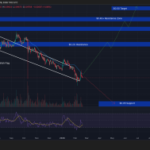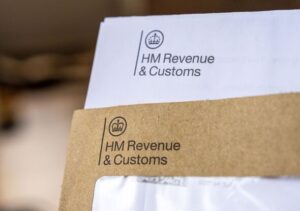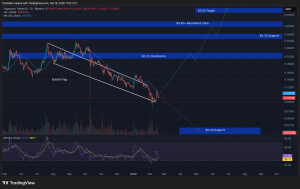
A bank expert has urged savers to secure any top interest rates now, warning that rates will inevitably come down over the coming years.
Paul Went, managing director of savings at Shawbrook Bank, encouraged people who have previously saved with the high street big name banks to look at alternative providers for “the most competitive rates”.
He had a particular warning for those with a fixed rate account that is soon to mature, urging: “Life is busy and it’s easy to forget when a fixed-rate savings account might have matured, or an introduction rate has expired.
“Block out a bit of time to review where you have your savings and set yourself reminders if it’s due to mature later in the year. Failing to move a matured fund could result in a loss of interest so take a moment to make the most of your money.”
He warned that “time is running out” to lock in a high-paying fixed rate account, predicting that more base rate cuts from the Bank of England will come soon.
In its latest decision, the central bank axed the base rate from 4.75% down to 4.5%, following several rate cuts from the peak of 5.25%.
Many savings providers set their rates based on the base rate, while others may opt to reduce their rates in light of a cut in the base rate.
Mr Went pointed to data from consultancy firm CACI that showed there has been a decline in the number of savings accounts being opened over the past three months, with a drop for both fixed term and easy access accounts compared to the same period for 2023.
He said: “The trend is particularly concerning for holders of fixed-term accounts, as 2.2 million fixed-rate accounts matured in the final months of the year—leaving funds potentially languishing in low-interest accounts.”
He encouraged people to use their annual ISA allowance, a pressing concern with the turn of the tax year in April. You can save up to £20,000 a year into ISAs, and any interest or investment growth from an ISA is tax free.
Basic rate income taxpayers can also earn £1,000 in interest tax-free each financial year, although this reduces to £500 if you are on the higher rate and drops to zero if you are on the additional rate.
Another tip from the savings expert is to make sure the savings provider you choose is registered with the FSCS (Financial Services Compensation Scheme).
This means your cash savings are protected up to the amount of £85,000 should your provider fail. Mr Went said: “It can be all too easy to use the bank you’ve always had a current account with.
“However, by considering challenger banks who have now been around for over a decade, and are as secure as any mainstream bank, you will be more likely to find a better deal.”
Following the most recent base rate cut, NS&I announced it would reduce the prize fund rate for Premium Bonds, dropping from the current 4% down to 3.8% from the April draw.
Experts have warned the prize rate may fall again, falling to 3.5% or even lower. Darren Mercieca, finance expert at Kiwi Bets, looked at some of the alternatives to Premium Bonds that customers may want to consider.
He explained: “A high-interest savings account or a fixed-rate bond, which locks in a guaranteed return, may be better options for anyone thinking about cashing in their Premium Bonds.
“Peer-to-peer lending platforms and stocks and shares ISAs may provide greater profits if they’re seeking something a little more active, but the risk is higher.”
Despite the rate cut from April, the odds of a £1 Bond being paired with a prize will remain the same, at 22,000 to one.

















